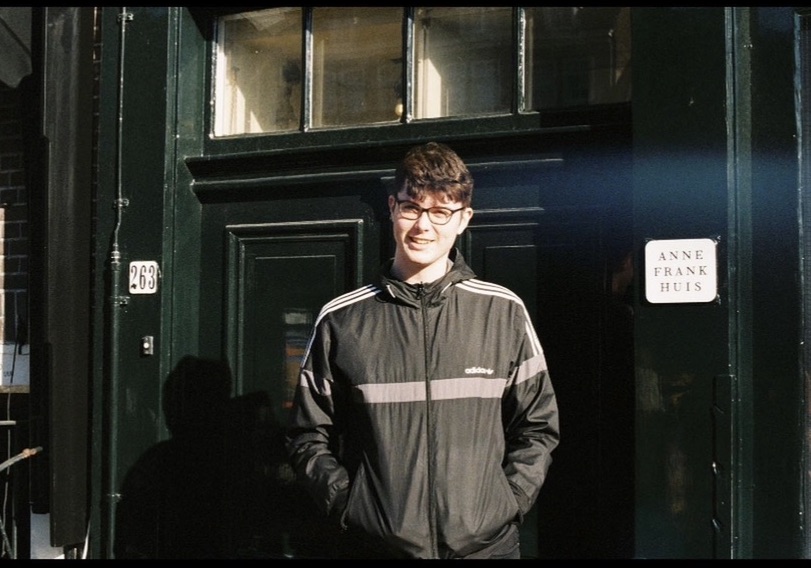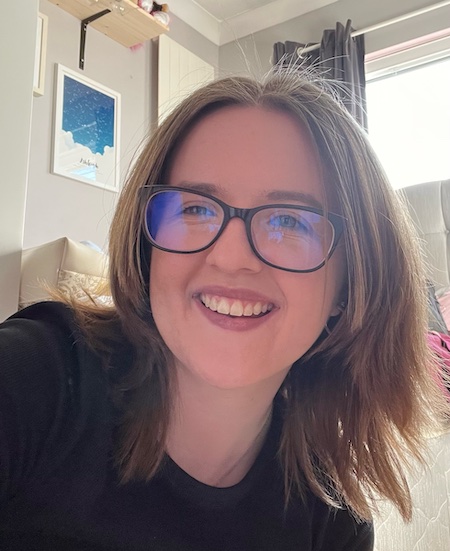“After chemotherapy I was given a 5% chance of fathering a child - it’s a miracle.”
Tuesday, 26 September, 2023
Case study
To mark Childhood Cancer Awareness month, we speak to Karl Corcoran (25), a member of the Young Persons Advisory Group ((opens in a new window)YPAG), a patient voice initiative of Systems Biology Ireland (SBI), spearheaded by Dr Peter McCarthy, clinical research fellow in the Bond Group at UCD. Funded by Science Foundation Ireland, SBI is now one of the larger childhood cancer research centres in Europe. Karl speaks about the longer-term repercussions of surviving childhood cancer and of his hopes that UCD research - such as the pioneering ‘digital twins’ work carried out by SBI director Prof Walter Kolch - will mitigate the devastating side effects of childhood cancer treatments.

“Miracles do happen,” says Karl Corcoran, 25, from Longwood, Co. Meath, as he and his partner Leah prepare to welcome their first child this month.
Before he had even begun treatment for his High Grade B-Cell Lymphoma in January 2021, Karl says he was given a 5% chance - “absolute best case scenario” - of fathering a biological child.
Infertility is often one of the devastating side effects of chemotherapy that would thankfully put his cancer in remission by the following June.
“It was physically impossible to give me any more treatments than they did; the chemo was that intense,” he says, of the four rounds he had in Dublin’s Beaumont hospital.
“They said, ‘It’s probably a 95% chance you’ll never have kids naturally.’ Before we even went to the hospital - I hadn't met Leah at the time - but I was, like, ‘I really do want to have kids one day.’”
Karl was understandably upset that the chance of parenthood, as he says, “just gets taken away from you for absolutely no fault of your own”.
There were more big adjustments to life after survival. Karl, a graduate of sports science from Athlone Institute of Technology, tried to go back to his previous job as a personal trainer.
“I kept finding myself crashing because it’s a physically demanding job. It all got too much for me and my consultant advised me to take a break.”
Now working as a medical secretary in a GP’s surgery, Karl still has to manage what he calls “mental fatigue” as well as physical.
“My bones are a bit brittle because of the necrosis,” he adds, of another life-limiting aftereffect of chemotherapy that he hopes will one day be lessened or eradicated.
“As part of YPAG we visited Systems Biology Ireland in UCD and saw the wet labs and dry labs. They explained how they are going to give therapies to children using digital twins - basically they try the therapies out on the computer first to mitigate side effects,” he explains. “I hope one day people can have the fatigue levels of a normal person after cancer treatment. Not that anything is normal to me anymore.”
Karl had presumed he would need to spend “thousands and thousands of euros for IVF for just a slim chance” of becoming a father.
“Now we’re going to welcome our own child during Childhood Cancer Awareness month. It’s a nice surprise.”
As he and his partner Leah prepare for the imminent arrival of their baby daughter, she is already a deep source of joy. But Karl can’t help but think of other survivors of childhood cancer who may not be as fortunate.
“Obviously, you're happy for it to happen to yourself but I know a lot of friends in CanTeen and they 100% know that they're not going to have kids,” he says of the a nationwide support group for young people between the ages of 12 and 25 years who have or have had cancer. “But they're still happy for you. You don't want to come across as gloating. I just think that it is an amazing thing to happen after such a traumatic time.”
